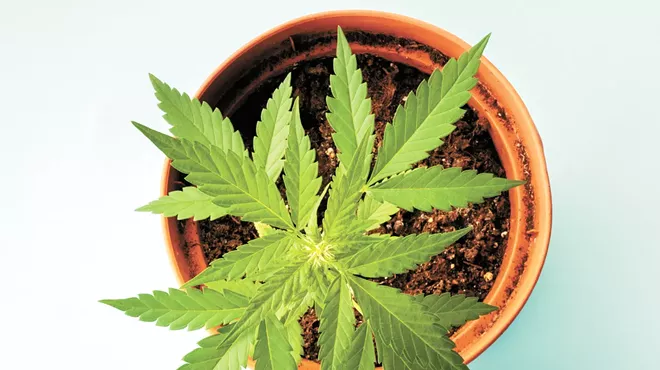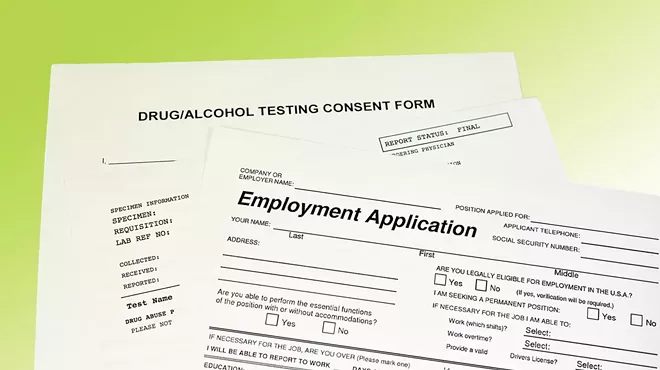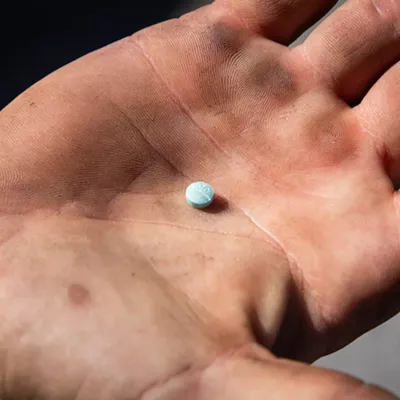
In late February, law enforcement officers, attorneys and politicians around the state were shocked by a Washington Supreme Court decision that found the state's criminal drug possession law to be unconstitutional.
At issue in the case was whether someone could be found guilty of a crime for unknowingly possessing drugs. The case involves a woman from Spokane who was convicted of meth possession after drugs were found in a pocket of the jeans she was wearing while being booked into jail on suspicion of a different crime. The woman said her friend gave her the pants and she hadn't known the meth was there.
But unlike every other state in the country, Washington's law didn't require prosecutors to prove that someone knowingly possessed drugs in order to convict them of simple possession. Lawmakers have known for years that including language about proving "intent" was advisable, so the court found that, as written, the law is unconstitutional.
The ruling created a gap in legality. As a result, people are not being arrested or charged for simple possession, pending charges have been dropped, and lawmakers are scrambling to find a fix to the rule before the end of session, which is scheduled for April 25.
The decision also raised immediate issues for court systems.
Depending on the details of their case, people currently serving time for drug crimes may need to be resentenced. The state Department of Corrections estimated in March that fewer than 100 people statewide are currently incarcerated on a simple possession conviction, and fewer than 7,000 are on community supervision. Meanwhile, thousands of individuals were either incarcerated or under community supervision due to a simple possession conviction in addition to a conviction for another crime.
If the ruling applies retroactively, and those convicted of simple possession in the past could have their felonies overturned, counties could also be required to refund fees people had to pay as part of their punishment called legal financial obligations. The news site Crosscut reported that could amount to as much as $47 million, not counting the additional costs associated with resentencing or hearing cases.
Lawmakers have proposed several fixes. One proposal would allow local jurisdictions to create their own criminal possession laws, as Grant County recently did. But that bill has yet to get a hearing and the end of session is fast approaching.
Another proposal, Senate Bill 5476, has been more successful in getting in front of a committee, and could transform the way personal drug use is handled across the state, directing people to treatment instead of jail cells.
PUBLIC HEALTH APPROACH
SB 5476 would decriminalize possession of personal use amounts of drugs and set definitions for what that means for substances including heroin, meth, oxycodone, methadone, cocaine, MDMA, LSD and psilocybin (found in psychedelic mushrooms).It would still be illegal to possess more than personal amounts of those drugs, and it would be a gross misdemeanor for anyone under 21 to possess any amount of a controlled substance (previously a felony).
The bill was brought forward by Sen. Manka Dhingra, D-Redmond, who was a senior deputy prosecuting attorney in King County for 19 years. During that time, she helped create and lead their therapeutic alternative unit, helped expand and run their mental health court, and was a crisis training instructor for law enforcement officers.
Under the bill, those found in possession of a personal amount could be referred to what's known as a forensic navigator, who could help them find treatment for substance use disorder. A similar program called Law Enforcement Assisted Diversion (LEAD) has been in place in Seattle for years, with officers directing those found with personal amounts of drugs to treatment instead of jail. That type of programming could expand statewide under this framework.
"Twenty-seven years ago, when we funded our first drug diversion court, that's when we started our journey with recognizing that jails and prisons were not the answer for substance use disorder," Dhingra said during an April 5 public hearing on the bill before the Senate Ways and Means Committee.
Two days later, Dhingra tells the Inlander that she believes the bill would help the state treat addiction as a public health issue, which would better align with what professionals have learned are the best ways to successfully rehabilitate people.
"I don't think our electeds are at the point in time of saying we need [full] decriminalization," Dhingra says. "However, what we have seen since we started down this public health approach 27 years ago is that the more opportunities you can provide for treatment earlier on, when people are given that opportunity and accept it, their success rate is extremely high."
Despite the significant upfront costs of getting diversion and treatment programs up and running, state and local agencies would likely save money in the long run, and people could have a better chance at success, she says.
Several affected groups weighed in on the bill during the April 5 public hearing, with multiple people in favor of the bill noting the outsized impact that the war on drugs has had on people of color.
Among those voicing their support was Kurtis Robinson, executive director of Spokane-based organization I Did the Time, which helps people overcome barriers to success that exist due to their past convictions.
"I am a living product of the fact that treatment works and it is a necessary intervention to bring people from a place of social isolation to a place of meaningful engagement in the community," Robinson tells lawmakers during the hearing.
Carmen Pacheco-Jones, director of the Health and Justice Recovery Alliance in Spokane, shares her own story of getting arrested two weeks after her 18th birthday on a shoplifting warrant and being found with $20 worth of heroin. She detoxed in jail, but as soon as she was released she says she was right back in the same situation, cycling in and out of the justice system until she managed to get clean.
"Traumatized individuals need humanized treatment to begin the road to recovery," Pacheco-Jones tells the committee, urging them to support the bill.
But not everyone is a fan of the proposed changes.
For cities, dropping the drug crimes for those under 21 down to a gross misdemeanor could mean their courts would have to take on those cases, which previously went to superior courts.
To address that last concern, Dhingra says she plans to introduce an amendment to her bill that would give the juvenile court system, which already uses treatment as a priority, oversight of possession charges for those 18 to just under 21 years old.
Others asked about unintended consequences. A prosecutor asked if there would be as much incentive for people to agree to treatment without the potential consequence of a criminal charge. A representative for a law enforcement group said the bill could make it harder for officers to arrest the dealers who sell to those struggling with addiction.
Dhingra says that the bill doesn't remove the elements of the law that allow for someone to be committed to treatment if they're a danger to themselves or others, and those who are causing other issues can still be held criminally accountable.
"The honest truth about this stuff is that the individuals who are really problematic for law enforcement, they're engaging in other illegal activity, so if they really want to hold them criminally responsible, they have other avenues of doing it," Dhingra says. "There needs to be this understanding that with substance use disorder, it really needs to be a public health approach." ♦




























